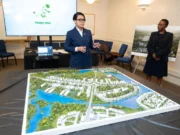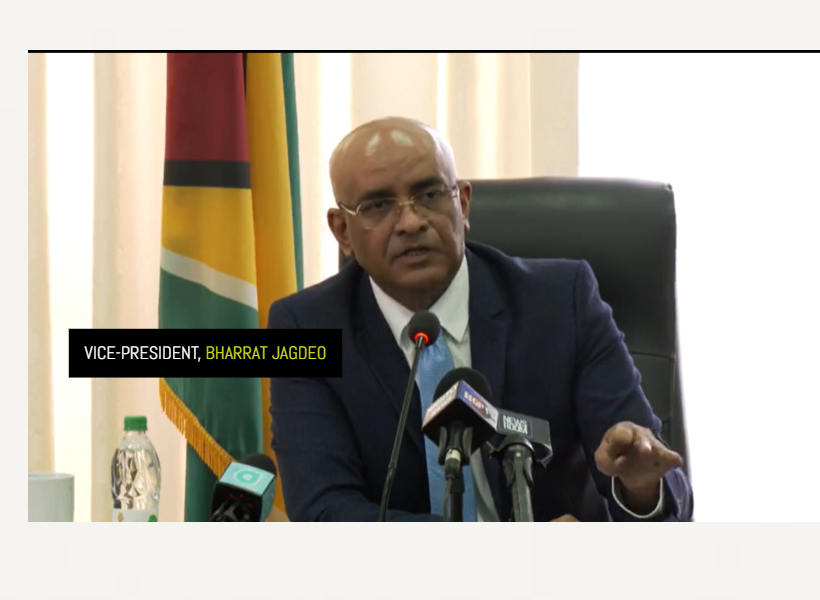Vice President Dr. Bharrat Jagdeo said on Thursday that the immediate construction of a second oil refinery is not in the government’s plans for Guyana, as the country’s current capacity supports only one facility.
This announcement was made during his weekly press conference, where he addressed questions from the media. Just over a week ago, President of Guyana, Dr. Irfaan Ali, signed a Memorandum of Understanding with the Dominican Republic’s President for the potential establishment of an oil refinery in Guyana, capable of refining around 50,000 barrels of oil daily. Notably, the Dominican Republic would hold the majority share at 51 percent.
In June, Jagdeo disclosed that his administration remains committed to setting up a modular oil refinery, with four strong contenders shortlisted. While he didn’t disclose their identities or origins, he explained, “There were about 11 and these were narrowed down to four that met all the parameters we requested in the Request For Proposal (RFP). That now needs to move to the next stage, which is to rank these, and then start the discussions with the number one ranked firm and see if we can reach an agreement”.
Back in January, the government received nine proposals for a local oil refinery project on Crab Island in Region Six. During the recent press conference, Vice President Jagdeo acknowledged these submissions and noted that the initial evaluation phase is complete, but the government awaits further details.
He added, “A number of other countries are sending in proposala”. “If it goes forward, it has to be on conditions that are good for the country and meet financial and technical requirements.”
The Vice President highlighted the government’s parallel focus on storage and strategic reserves, stating, “With Trinidad, there were some discussions but if we are doing a refinery, it will be here because it defeats the purpose to have the refining done in Trinidad.”
Jagdeo emphasized the government’s motivation for a refinery, citing national energy security as a prime concern. He said it is considering the feasibility of tolling some of Guyana’s crude and evaluating the associated fees for refining and storing the refined products.
Furthermore, he indicated that not only would a refinery bolster national energy security, but it could also potentially lead to more affordable energy costs based on preliminary projections.













